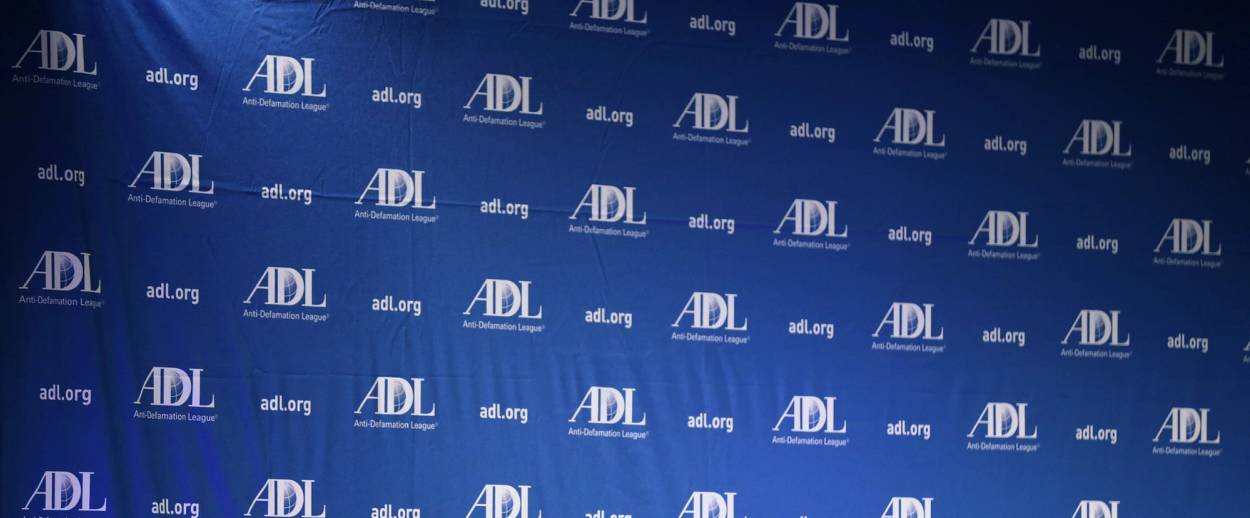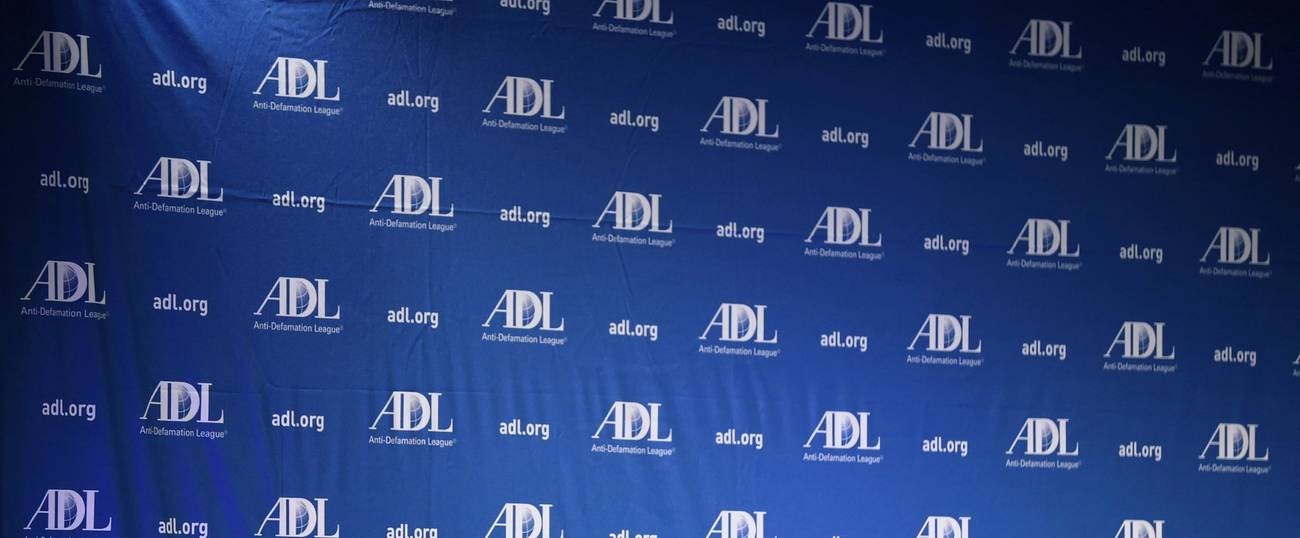No, the ADL Is Not Soft on Left-Wing Anti-Semitism
It’s time to debunk this myth once and for all




My colleague Liel Leibovitz has a piece in today’s Wall Street Journal that reflects a common conservative misconception about one of America’s most venerable Jewish institutions, the Anti-Defamation League. In his characteristically clear prose, Liel argues that the ADL has morphed into a partisan attack outlet for the left, abandoning its traditional role in fighting anti-Jewish prejudice across the political spectrum.
“You hardly have to be a national organization dedicated to fighting anti-Semitism to realize that the threats to Jews these days come as fiercely from the left as they do from the right,” he observes. “We need a principled organization committed to meeting threats wherever they arise and practically positioned to do so, not another feeble voice in the hallelujah chorus of progressive dogma.” In support of this contention, Liel offers an array of seemingly damning examples of anti-Semitism that the ADL has ignored on the left.
But does the ADL really go easy on progressive anti-Semitism? If true, it would be a serious indictment of the organization and a betrayal of its historic mission. After years of covering anti-Jewish prejudice across continents and political persuasions, however, I can categorically state that the opposite is the case. And I can demonstrate this with reference to Liel’s own examples.
Let’s take them one by one. Liel writes:
… the ADL published “Naming the Hate,” a guide designed to identify the most menacing anti-Semites in America. It profiled 36 people—all of them on the right.
It’s obvious why the list includes Andrew Anglin, proprietor of the neo-Nazi website the Daily Stormer. It’s less obvious why it wouldn’t also include bigots like Joy Karega, the Oberlin professor who blamed Jews for 9/11, or Linda Sarsour, the Women’s March organizer who has celebrated Rasmea Odeh, a Palestinian terrorist convicted of murdering two Israelis, or the organizers of Chicago’s Dyke March, who last year expelled Jewish marchers holding up rainbow flags emblazoned with the Star of David.
Now, the full title of the “Naming the Hate” report was actually “From Alt-Right to Alt-Lite: Naming the Hate.” In other words, it was a dossier of the alt-right and its fellow travelers, so there was no reason why it should have included left-wing bigots. That said, it would still be troubling if the ADL had not elsewhere condemned these incidents, in their appropriate place. In reality, though, they did.
“Naming the Hate” was released on July 18. Weeks earlier, on June 30, ADL CEO Jonathan Greenblatt published an op-ed in Time magazine entitled “Anti-Semitism is Creeping Into Progressivism.” The piece deserves to be read in full, but here’s how it starts:
Last weekend, organizers of a gay pride parade in Chicago ejected three people carrying pride flags emblazoned with a Jewish Star of David. Subsequent bizarre statements attempting to rationalize their action, claiming that Zionism is “an inherently white supremacist ideology” only exacerbated the sense that the organizers were deaf to the concerns of the Jewish community and engaged in anti-Semitism—denying Jews the same rights that were extended to other participants, basically to celebrate their identities as Jewish queer women.
While this incident could be dismissed as one fringe group in one city, the fact is that it does represent a wider school of thought that is fueling a trend of creeping anti-Semitism among some segments of the political left.
Among the explicit examples offered in the piece: “A plank in the platform of the Movement for Black Lives bizarrely accused Israel of genocide” and “Linda Sarsour, a leader of the women’s rights movement, [who] has lambasted Zionism as incompatible with feminism and advocates for the exclusion of pro-Israel Jews from activist groups.”
Greenblatt then explained how the ADL seeks to both support worthy social justice causes and call out prejudice whenever it infects them:
We do not agree with every tenet in the Black Lives Matter platform … However, we find common cause with many in the BLM movement around the quest to achieve educational equity, end the school-to-prison pipeline and stop the use of excessive force and the killing of unarmed African-Americans by some in law enforcement.
In the case of the Muslim community, we work to combat discriminatory laws such as the Muslim Ban, to call out Islamophobia whenever it happens, such as the recent use of scare tactics to stoke fear that sharia law is taking over this country and to promote greater understanding of their faith through intergroup work …
On the other hand, when hatred comes from individuals in those very communities or organizations for whom we advocate, we are duty bound to raise our voice.
“Even as we fight alongside other groups on issues of mutual concern,” Greenblatt concluded, “we should not sacrifice our principles, and we will forcefully denounce those who would slander our community and resort to stereotypes. This does not mean we need absolute ideological alignment with every prospective partner. But it does mean that we need to draw lines in a clear manner—and demand that our allies observe those fundamental values that we also seek to live by: equality, fairness and respect for all.”
Greenblatt’s op-ed clearly struck a chord and was shared over 30,000 times on Facebook. It also wasn’t anything new. The ADL had condemned the Movement for Black Lives platform’s false accusation of Israeli genocide as “repellent” (the Palestinian population has increased four-fold since Israel’s founding, per Palestinian statistics) when it was first shoehorned into the document by a small group of activists. The ADL had also condemned Sarsour’s views, while, in a principled stand, defending her right to speak on campuses—a right she would deny to the ADL and other “Zionists.”
Liel writes that “when … a popular progressive running for California’s Assembly hails Louis Farrakhan, it is crucial that any watchdog rise to address bigotry no matter its partisan origins.” He is referring to Maria Estrada, the candidate challenging California’s state speaker from the left, and who has a history of anti-Semitic invective. Liel is right that such bigotry warrants immediate repudiation. Fortunately, the ADL has been on the case, sharing Tablet’s own coverage of the story along with their own analysis:
Reaction from our CEO @JGreenblattADL on statements made by CA candidate Maria Estrada https://t.co/UMkkPMM2YC pic.twitter.com/QAgROpgL1A
— ADL (@ADL_National) July 11, 2018
Re: CA Assembly candidate Maria Estrada, @ADL_National writes: “It’s impossible to ignore the undercurrent of anti-Semitism running through a number of Estrada’s comments about Zionism and Israel.”https://t.co/TTdB67U0hx
— Jake Tapper (@jaketapper) July 13, 2018
(As the reporter who covered that story right here at Tablet, I can tell you that the only reason the ADL’s condemnation wasn’t included in my piece is that it arrived shortly after we published.)
Now, the ADL is a giant organization, and it’s understandable that some of its interventions would get lost in the cacophony of today’s chaotic news cycle. But they still happened.
The truth is, far from being soft on left-wing anti-Semitism, the ADL is regularly attacked by hard-left extremists precisely because the group refuses to look the other way when it comes to anti-Jewish prejudice among progressives. Most recently, after the ADL exposed Women’s March organizer Tamika Mallory as a long-time supporter and promoter of Louis Farrakhan, she and her fellow organizers tried to get the ADL kicked off the team designing Starbucks’ sensitivity training. (Louis Farrakhan himself has long been one of the ADL’s most vociferous critics.)
Does the ADL get it right every time? No organization does, and I certainly don’t agree with every call they’ve made on the left or the right. But no one can accuse them of shirking from the fray or playing politics with their principles. That’s unfortunately more than can be said of many other groups that act in the Jewish political space, which too often ignore or even cover for prejudice among their allies–whether it’s the Zionist Organization of America celebrating Steve Bannon or IfNotNow Chicago defending the expulsion of Jewish lesbians with Jewish pride flags from the Chicago Dyke March.
We can and should debate the role of the ADL in our national life. It’s fine to question, as Liel does at the outset of his piece, whether the organization should weigh in on partisan political fights like the Kavanaugh nomination. But let’s make sure that our conversation about the group is grounded in fact rather than fiction.
Related: Women’s March Organizer and Farrakhan Fan Tamika Mallory Attacks The Anti-Defamation League
Four Reasons The Chicago Dyke March Was Anti-Semitic
Chicago Dyke March Drops Pretense, Deploys Anti-Semitic Term Popularized by Neo-Nazis
From Left to Right, Jewish Groups Condemn ‘Repellent’ Black Lives Matter Claim of Israeli ‘Genocide’
Yair Rosenberg is a senior writer at Tablet. Subscribe to his newsletter, listen to his music, and follow him on Twitter and Facebook.